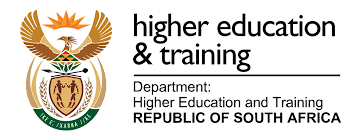Opinion Column
It is hypocrisy at worst to witness the colleges trying to consume money from the treasury because it was not used during the academic year. This is the modus operandi of these institutions at the end of every year to deal with money they could not use properly due to lack of cooperate administrative skills and poorly communicated mission.
Cooperate administration of institutions like colleges, hospitals, schools etc has always taken a back seat with incompetent and lay men collected from the streets allowed to call shorts. In a politically clouded environment justice is often overtaken by comradeship and personalities: The two are arch enemies of good governance and success.
Our colleges do not play a fair game in chasing pass rates and not employment rates. The taste of the pudding is in the eating. The shift from celebrating paper work to facing the true challenge of employment is disguised in useless parties while the students’ challenges had just begun.
The ill-hated apartheid government had a lot that the government of the day could take a leaf from. We do not celebrate processes but the end-result. The reason colleges are unable to fit their candidates into the industry is a shame necessitating complete overhaul of the system.
High schools like colleges are known to organise events to celebrate high matric pass rates every year but this parties and their accompanied pass rates cannot be transformed into employment rates. It is a move to hide real issues behind academic marks.
It is a known fact that the very same marks that are celebrated cannot be relied upon. In TVET colleges level 2 and 3 scripts are marked internally by the very same lecturers
that are responsible for teaching and learning. This brings us to a player and a referee scenario.
Research has been conducted to establish whether results signify competence, skills and knowledge acquired. To put it simply: does the results of a students reflect the knowledge and skills of a student. The answer is no. Examination is one thing, while skills is another; so, why celebrate examination that has nothing to do with employability: the ultimate reason for attending college.
The Apartheid government trained artisans and engineers who were absorbed by state parastatals and other government business. It was unheard of for students to run around the industry looking for employment, placement or a stint for completing their studies. The planning of the so-called technical colleges was in line was national and regional infrastructure development.
Many of apartheid graduates did not run around looking for jobs because there was a government that cares, a government that prioritized its youth and the country was working as a result. The reason for students to attend colleges was manifested by high employment rate and hunger and poverty were minimal among graduates.
Today, for reasons best known by the rulers of the day, students progress is measured by marks and not functionality in the industry.

